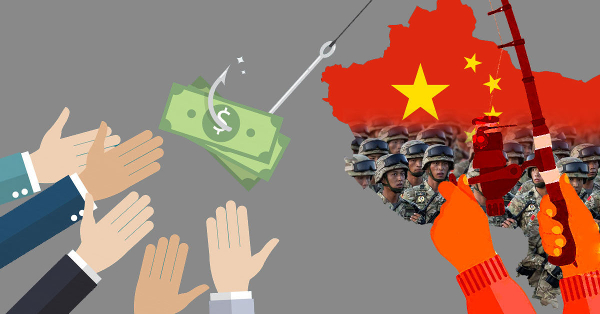NEW DELHI: India has turned down an official invite from China to attend the second Belt and Road Forum meet scheduled to take place later this month, ToI has learnt from diplomatic sources.
India had boycotted the first meet held in Beijing in 2017 as well because, as the government has resolutely maintained, China’s BRI undermines India’s sovereignty in the form of the China-Pakistan Economic Corridor (CPEC) which passes through the disputed Gilgit-Baltistan region.
China was hoping that India would review its position on BRI – and participate in the Forum on this occasion – keeping in mind the remarkable turnaround in ties last year, as evident from the first informal summit between PM Narendra Modi and President Xi Jinping in Wuhan in April 2018.
The invite to participate in the Forum meet was delivered to MEA by Chinese authorities last month but India responded by reiterating its concerns over CPEC. It’s unlikely at this stage that anybody in the Indian embassy in Beijing will participate in the event even as an observer.
The Wuhan ‘spirit’ was dented this year by China’s decision to again put on “technical” hold a UN resolution to ban Pakistan based terror group Jaish-e-Mohammed (JeM) chief Masood Azhar. JeM had claimed responsibility for the February 14 Pulwama attack in J&K which left over 40 CRPF personnel dead.
This was the fourth time China blocked a ban on Azhar, the leader of a UN-proscribed terrorist organisation. Beijing’s action made it even more difficult for India to think in terms of participating even at a very junior level in the Forum, which is likely to be attended by about 40 heads of state and government including Russian President Vladimir Putin. The second such Forum meet will also take place in the middle of Indian parliamentary elections.
While India is not averse to working with China on infrastructure initiatives bilaterally or multilaterally, it wants certain international norms to be followed including those on transparency, economic feasibility and also “mutual respect for sovereignty and territorial integrity”.
The fact that CPEC has been projected as the flagship project of BRI has prevented India from nursing any thought of reviewing its position. Instead of joining BRI, India is seeking to promote its own connectivity initiatives under its Act East, Go West and Neighbourhood First policies which, the government believes, are more in tune with internationally recognised norms, rule of law and transparency.
The BRI meet this time will also take place at a time when the Chinese initiative to build infrastructure has run into controversies in several countries, including those in India’s neighbourhood like Sri Lanka, the Maldives and even Pakistan.
With many describing BRI projects as China’s debt diplomacy and even new colonialism, India has repeatedly warned against irresponsible debt practices in carrying out connectivity initiatives.
As India has said in the past, these initiatives must follow principles of financial responsibility to avoid projects that would create unsustainable debt burden on countries. With the exception of Bhutan though, all Indian neighbours participated in the first BRI Forum meet in China in 2017.
Source: ToI
Image Courtesy: African Exponent
You may also like
-
IAF Aircraft Set Course For Exercise Eastern Bridge VII At Oman
-
India-us Working Together In Areas Like Critical Minerals, Supply Chains And Advanced Technologies: Shri Piyush Goyal
-
Defence Secretary to co-chair 5th India-Philippines Joint Defence Cooperation Committee meeting in Manila
-
2nd India-Japan Finance Dialogue held in Tokyo on 6th September, 2024
-
Prime Minister, Shri Narendra Modi welcomes Crown Prince of Abu Dhabi
